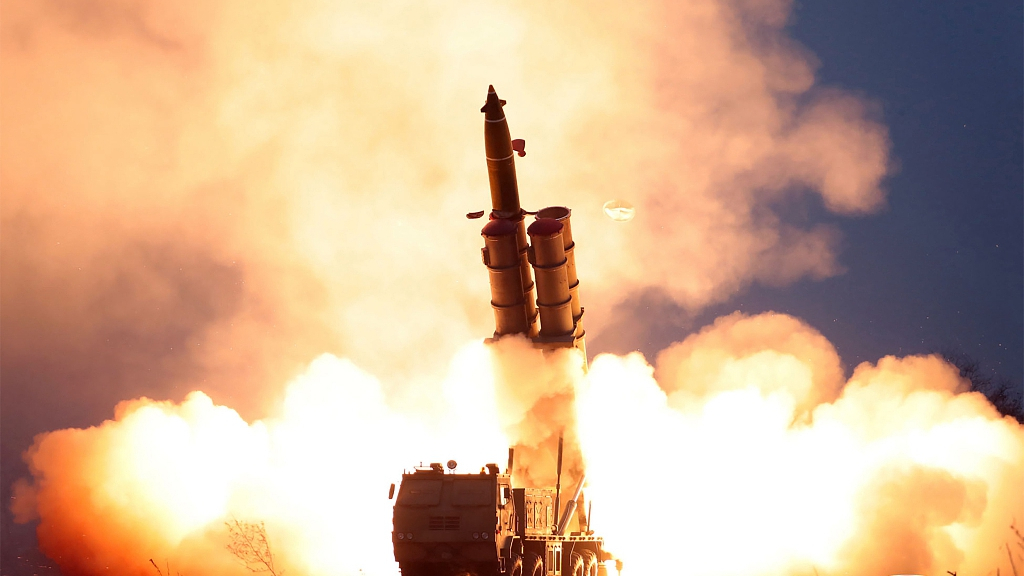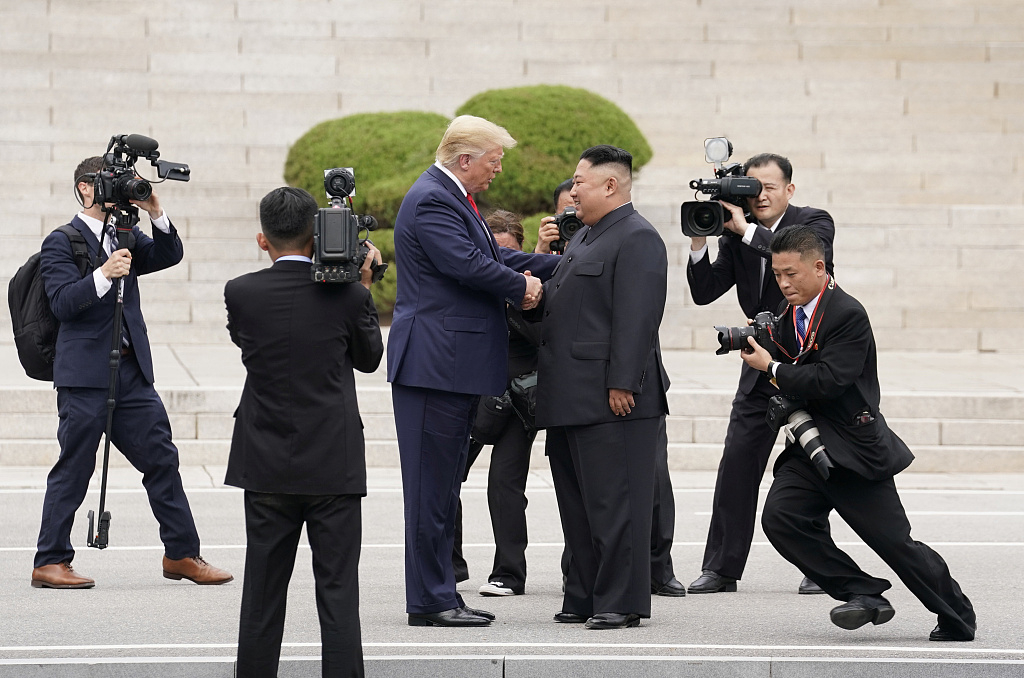
The test-fire of a super-large multiple launch rocket system, DPRK, Nov 29, 2019. /VCG Photo
The test-fire of a super-large multiple launch rocket system, DPRK, Nov 29, 2019. /VCG Photo
Editor's note: Tom Fowdy, graduated from Oxford University's China Studies Program and majored in politics at Durham University, writes about international relations focusing on China and the Democratic People's Republic of Korea. The article reflects the author's opinions, and not necessarily the views of CGTN.
Overshadowed by news related to China and the U.S., things have been turning for the worse in Washington's relationship with Pyongyang, but any keen observer would have long seen it coming. Early this week, the Democratic People's Republic of Korea pronounced a series of warnings that if the United States is not prepared to negotiate fairly, then it will take "another path" with a deadline set by the end of the year.
Pyongyang proceeded to taunt President Trump, stating he must "choose what he wants for Christmas". The President quickly responded by implicitly threatening military action against the country, his first allude towards such in nearly two years. Korean Central News Agency (KCNA) then hit back again, taunting the President as a "dotard"- an insult last wielded in 2017 after Trump had threatened to "totally destroy" the country.
These exchanges of threats and insults seem a world away from the historic summits whereby Trump met Kim Jong Un in Singapore, Hanoi, and Panmunjom. While winter brings in a chill to relations, the diplomatic breakthroughs and promises of peace appear to be quickly melting away, and thus, before we know it, another potential nuclear and missile crisis appears to be on the horizon.
What happened? What went wrong? The problem lies exclusively with Washington's complete refusal to offer pragmatic or flexible negotiation terms by which Pyongyang has made clear from day one were never acceptable. The White House refused to budge from the line of "no sanctions relief until complete denuclearization is offered"- believing erroneously that stipulations had crippled the DPRK and time was on their side. However, Kim Jong Un's position didn't change, and now his latest horseman stunt indicates big decisions are afoot.
From day one of the Trump administration, its self-styled "maximum pressure" policy has heralded the ultra-hawkish belief that the DPRK can be made to surrender its entire nuclear weapons program by sheer force unilaterally. Empowered by the misleading logic of "collapsism", hawkish officials encouraged the President that he could bring Pyongyang to its knees by economic pressure and the threat of military action, which would, in turn, threaten the survival of the country. Thus, it embodied the misleading goal that unilateral nuclear disarmament was possible and that any compromise was defeat.

U.S. President Donald Trump meets with DPRK leader Kim Jong Un at the demilitarized zone in Panmunjom, South Korea, June 30, 2019. /VCG Photo
U.S. President Donald Trump meets with DPRK leader Kim Jong Un at the demilitarized zone in Panmunjom, South Korea, June 30, 2019. /VCG Photo
Thus, the policy saw Trump rapidly ratchet up sanctions upon the DPRK to the point of near-total embargo while threatening war, which in turn saw Pyongyang respond with a spree of testing to increase their own leverage. When diplomacy commenced in early 2018, U.S. officials carried these assumptions forwards, believing the DPRK was now desperate for sanctions relief and leverage was on Washington's side. However, Pyongyang's ideology demands resistance and long term struggle against great powers to achieve on its own terms, not to surrender to them and be dominated.
Thus even though these summits were highly publicized for their style, in substance, they offered nothing as the U.S. is contrary to the advice of almost everyone, refused to concede an inch. No sanctions relief, no formal end to the Korean War. The Hanoi summit in February broke down for these very reasons. The White House didn't learn its lesson. When Moon Jae In wanted to restart inter-Korean projects as agreed in the Panmunjom declaration, Washington blocked him and refused any sanctions relief. Soon, what was a stalemate began to become tense as Pyongyang put relations with Seoul on ice and started testing short-range missiles again, which it has done since April.
Now, Pyongyang is sending clear warnings that bigger things lie ahead. It has for several months given the Trump administration an "end of the year deadline" that if it does not offer fairer negotiating terms, it may take "another path".
At first glance, this could well be a threat by Pyongyang to resume longer missile testing, space launches, or even nuclear testing again. The tough sanctions placed on the country in 2017 have not changed Pyongyang's position, nor have they brought it to kneel. The country has long shown it is prepared to endure pain in the militant pursuit of its long term goals.
As a result, perhaps the most favorable window in history for diplomacy with the DPRK is now fading away because the White House has dually and stubbornly insisted on a one-sided unilateral approach that has refused to acknowledge the realities of the situation, which is if anything a cut-and-paste solution the administration has pursued towards every single foreign policy issue. Thus, unless something changes dramatically in the next couple of weeks, 2020 is likely to be a very turbulent year on the Korean peninsula.
(If you want to contribute and have specific expertise, please contact us at opinions@cgtn.com)